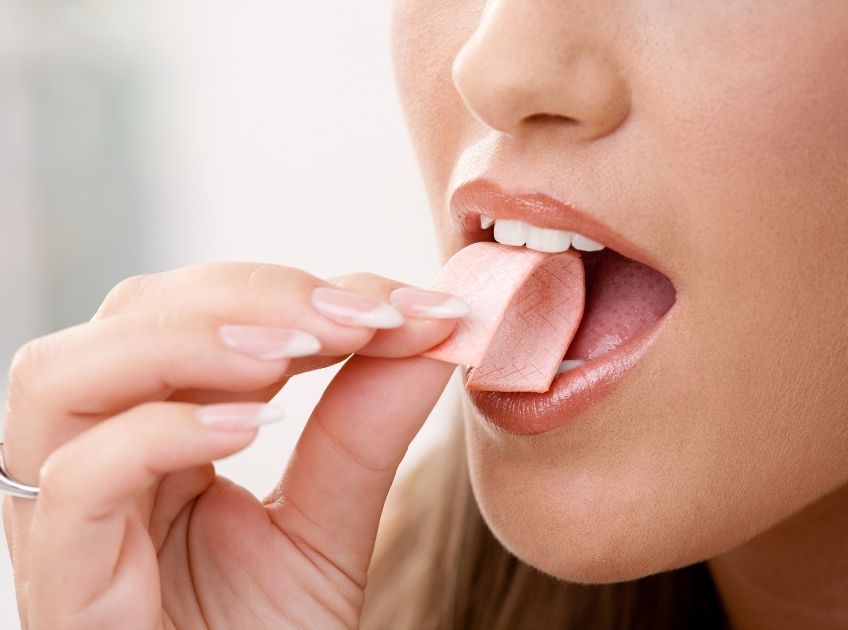
Important: This article is for informational purposes only. Please read our full disclaimer for more details.
Most of us chew gum for fresh breath or to stay alert. But did you know this simple habit may offer some surprising health benefits? From boosting brain performance to supporting digestion and dental health, chewing gum may actually be good for you—especially when you choose the right type.
Let’s explore how this seemingly small habit can positively impact your health.
5 Benefits of Chewing Gum You Should Know
1. Keeps Your Mouth Fresher and Cleaner
Chewing gum—especially sugar-free varieties—promotes saliva production, which helps wash away bacteria and food particles. Increased saliva can also neutralize acids in the mouth, reducing the risk of tooth decay and bad breath.
Best Choice: Sugar-free gum with xylitol, a natural sweetener known to reduce harmful oral bacteria.
2. Boosts Focus, Concentration & Brain Function
If you chew gum during work or study sessions, you’re already helping your brain. Research suggests that chewing gum may increase blood flow to the brain, improving alertness, memory retention, and concentration (1).
Many people find chewing gum helps them stay mentally sharp, especially during tasks requiring continuous focus.
3. May Reduce Stress and Improve Mood
Chewing gum can activate relaxation-related brain regions and act as a mild stress reliever. Studies suggest it lowers cortisol (the body’s stress hormone), helping you feel calmer and less anxious throughout the day (2).
It also provides a physical outlet for tension and restlessness—similar to fidgeting but more socially acceptable.
4. Supports Digestion and Reduces Heartburn After Meals
Chewing gum after eating may aid digestion by stimulating saliva and swallowing. Increased saliva production helps neutralize stomach acid, which can reduce acid reflux and heartburn symptoms.
Chewing gum also promotes movement in the digestive tract, which is why some people chew gum after heavy meals to avoid discomfort.
5. Helps Manage Cravings and Supports Weight Control
Gum can serve as a smart alternative to mindless snacking when cravings strike—especially for something sweet. Chewing gum keeps your mouth busy and may reduce appetite, helping you avoid unnecessary calories.
For those trying to cut down on snacking or smoking, gum can act as a healthier replacement habit.
What Research Says: Is Chewing Gum Really Good for You?
Several studies support the health benefits of chewing gum:
- A study published in Appetite found that chewing gum can help reduce food cravings and lower calorie intake between meals (3).
- Research in Nutritional Neuroscience reported improved cognitive performance and mood among gum chewers compared to non-chewers (4).
- The American Dental Association (ADA) recommends sugar-free gum as a supportive tool for oral health after meals, especially when brushing isn’t possible (5).
While more research is ongoing, existing studies show that chewing gum—specifically sugar-free gum—can positively influence mental, oral, and digestive health.
Frequently Asked Questions (FAQ’S)
1. Is chewing gum every day safe?
A. Yes, chewing sugar-free gum in moderation is generally safe for most people. However, excessive chewing may cause jaw discomfort in some individuals.
2. Which type of gum is healthiest?
A. Sugar-free gum, ideally sweetened with xylitol, is best for oral health. Avoid gums with artificial sugars if you are sensitive to them.
3. Can chewing gum help with weight loss?
A. Chewing gum may help reduce snack cravings and lower calorie intake, making it a helpful tool for weight management—but it is not a standalone weight-loss solution.
Should You Chew Gum Daily?
Chewing gum offers more benefits than most people realize. From freshening breath to boosting focus, easing stress, aiding digestion, and helping with cravings, it’s a habit that can support both oral and mental well-being.
Just remember: choose sugar-free gum for the healthiest results.















